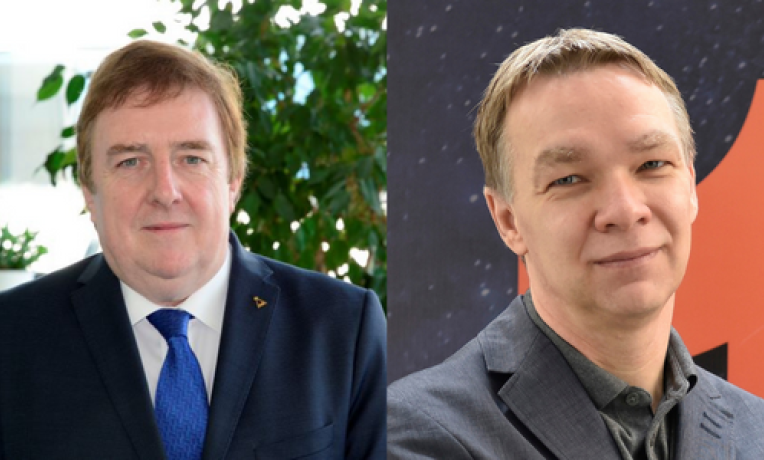Mapping the frontiers of science - ERC Scientific Council editorial

The ERC’s bottom-up approach to funding research has sparked 6700 projects under the Horizon 2020 framework programme, many of which have pushed scientific frontiers and advanced knowledge in fields varying from mathematics to linguistics and from history to biology. Similarly, several of these projects have accelerated solution for healthy lives, contributed concrete ideas to innovations or made a societal impact to build more sustainable futures. Think for instance about the mRNA-based COVID-19 vaccine, which was developed by ERC grantee Uğur Şahin.
With the aim of tracking the exciting science being pursued by ERC grantees, the Scientific Council developed a detailed classification system. This system captures projects according to three dimensions – disciplines, topics, methods – and currently contains some 900 terms. The results are laid out in several factsheets, which have been made widely available.
The panel fact sheets give a comprehensive ex ante view of the frontier science funded in each of the 25 ERC evaluation panels and under the Synergy Grant scheme. It is fascinating that the data gathered demonstrates synergies across scientific fields, points to interdisciplinary crossovers, and maps the emerging frontiers of science in Europe.
The panel factsheets also provide interesting information regarding which countries are doing well in terms of ERC funding and in which scientific disciplines. The material really allows a European mapping of disciplinary strengths across EU member states and Horizon 2020 associated countries, as well as for mapping interdisciplinary aspects of current frontier research in Europe.
Three policy factsheets portray the contribution of the ERC’s H2020 frontier research projects to three key policy areas of the European Union, namely the European Green Deal, a Europe fit for the digital age and the EU4Health programme. These factsheets demonstrate that, despite its curiosity-driven approach, the ERC is already massively funding research relevant to every major policy area.
Looking back, an interesting aspect that has emerged from the mapping exercise is the connectivity between fields of science. We are now able to show that the ERC truly covers a vast area of scientific fields. Important in fostering this diversity is that research is not funded top-down. For the ERC, it is really about the science. It is essential for ERC projects that they remain ‘high-risk’, ‘high gain’ with excellence as the sole focus in their evaluation. Thus, this mapping exercise will not lead to calls in specific fields. Rather, the intention is to take stock of the rich and diverse scientific landscape the ERC is funding, see how fields of science evolve, how these scientists react to challenges and new insights, and what new fields of science will appear in the future.
the intention is to take stock of the rich and diverse scientific landscape the ERC is funding, see how fields of science evolve, how these scientists react to challenges and new insights, and what new fields of science will appear in the future
We can expect that if a similar mapping exercise was carried out on agenda-driven research, it would lead to more of a clustering of certain areas, because it results from calls about the energy transition or about how to make agriculture more sustainable. Such a mapping exercise will obviously not give such a broad overview of what research is being taken up in scientific communities, across all fields of science and the humanities, and reveal the added- value of curiosity-driven research. This is the whole idea of the ERC: a quantum leap in scientific fields that is uncovered with this mapping exercise.
Looking at these data, gathered and analysed, it is truly fascinating and rewarding to see that bottom-up research works amazingly well!
Dirk Inzé
Member of the ERC’s Scientific Council
Chair of the ERC’s Working Group On Science Behind the Projects
Michael Kramer
Former Member of the ERC’s Scientific Council
Former Chair of the ERC’s Working Group On Science Behind the Projects
Explore "Mapping of ERC Frontier Research"
- Overview ERC Frontier Research in H2020 (PDF)
- Factsheets by domain
- Factsheet about projects funded under the Synergy Grant scheme
- Policy factsheets
- Magazine article
- External opinion: Mapping of ERC funded projects
- Insider view: How the ERC mapped science frontiers

